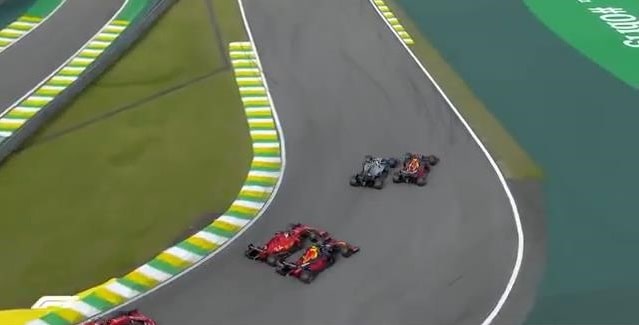

Today crisis of pandemic COVID-19, making the company's business activities decrease dramatically due to reduced market demand or because it had to be stopped by government regulations to reduce the rate of distribution of COVID-19.
Interestingly, the crisis also drives online sales increasing rapidly while accelerating the transition of people's shopping habits, from the traditional to the digital and online ways.
Of course, market demand affects the financial aspects of the company. The most common response and standard performed by most companies is to stop all matters that are expenses or costs for the company.
But for the smart company leader or owner, use an opportunity like this to upgrade the management for better, more agile, and more in line with market development trends and technology.
One of the ingenious actions is implementing a modern and integrated business management tool known as ERP (enterprise resource planning). It makes the business agile, easy to manage from everywhere, and all business processes seamlessly integrated. Companies that do that upgrade during the crisis will be leading in a welcoming market raise after the crisis end.
Unfortunately, most companies miss the golden opportunity to upgrade the business during crisis time. They usually stop all expenses, including the investments for better management capabilities. These companies can only watch when the market recovers from the crisis. They just think about taking improvement when other is finishing.
In short, the current crisis due to COVID-19 is the best time to implement an ERP system for upgrading the company's ability to benefit from market rise and be able to compete in online or e-commerce market channels.
Here are the 8 Golden Opportunities from the crisis to implement ERP system and upgrade the companies:
The crisis makes the intensity of activities drop sharply. Thus during the crisis, spare time of key personnel or resources will abundantly available. People usually on full load during the peak season, now become idle.
Smart business owners or smart leaders see this as a golden opportunity for improvement. These potential resources are now able to focus on the improvement activities.
Smart business leaders or owners indeed tightening of expenditure, but investment in the improvement program is still being carried out and encouraged to upgrade the company to be ready to meet the next peak condition.
On peak season, Businesses are busy fulfilling customer demand. People are fully loaded. On the other hand, all problems, obstacles, or limitations of the system become very easy to spot in this condition. Launching an improvement program initiative at this time looks reasonable, but all relevant personnel are busy, unable to focus on the improvement efforts. The improvement program hard to be successful.
The improvement process also takes time and has a critical transition period. During this period performance usually decrease despite the high demand. While it is normal, but in peak season conditions, people just will not happy at all.
Mediocre entrepreneurs are usually just willing or open to the initiative of improvement programs in such peak conditions. Generally, because the problems are easy to see, causing a blockage here and there, and the cash flow also good in peak season. Therefore it justify the spending on investment in improvement programs to be done.
Unfortunately, in peak conditions, all personnel are busy and not interested in long-term improvement programs, and are only interested in ad-hoc solutions such as overtime, increasing headcount, or sub-contracting. Therefore no significant improvement happens.
When the low-season comes, like now in the current COVID-19 crisis, for ordinary entrepreneurs except a cash flow problem, there is no more problem now. the only problem is the cash flow problem. (Of course, because all bottlenecks and blockages are now automatically disappearing suddenly, there is no customer request there is no bottleneck). The most common response is to stop all expenses, also expenses for investment improvement programs.
In contrast to shrewd entrepreneurs, they upgrade companies like implementing an ERP system during the crisis time, the one like the current COVID-19 crisis. They see crisis as a golden moment to improve the business. When the crisis passes, the company will become more agile, modern, and integrated, and ready to welcome the peak-season leap.
When demand is low, improvement activities will not disrupt or reduce the quality of service to your customers. No delay in delivery will happen even if there is a decrease in performance caused by the transition during the change process.
The improvement activities will not hamper the response to the customer as well. Even though the related personnel have to take part in the improvement activities, for example attending a discussion meeting on the improvement program, the required meeting time is available without having to interfere with the time to serve the customer.
The improvement like the implementation of an ERP system, including Odoo ERP, usually requires the involvement of many related personnel from various functions or departments in the company, for example, to gather needs, to take an agreement to get rid of obstacles and change the processes that do not add value. Also for the training process, for the collection and cleaning of master data, and others.
All of those activities will not impose delays or disrupt services to the customers because people have spare time abundantly from a drop in business activity.
So, during low-season due to the current co-19 crisis, the best time to upgrade the quality of company management In the context of implementing an ERP system, this is the best time to apply ERP in the company.
It is hard to stop or to make off-line of one or more resources, such as production machines, computer servers, or responsible personnel, or other equipment. Stopping the operation of resources in peak conditions will delay fulfilling customer requirements.
The improvement program initiatives often require an action to stop the operation of certain resources. It is uneasy during the peak time, but during the low season, it is not a problem at all.
Every improvement initiative within a company, for example, implementation of an ERP system, will require the involvement of relevant persons as the users. Those users certainly need to have training sessions before they can master a new way of working or perform the task very well.
In low-season conditions, each user will be able to spend more time on training and to practice it. The training program can be far more extensive and more intensive because of more time available.
Contrary, during the peak season, it is hard to have enough time for intensive training. The people are desperately busy with the main tasks already.
Because every improvement effort means change and change certainly requires training of the related personnel, low-season conditions are the best time to implement improvement programs within the company, including to implement ERP systems in the company.
A company shall not lay off all employees because of the low order season by the crisis. The company will need to keep the employees with skills, except it will close forever.
In other words, the company still has to keep some of its employees considering various reasons. Although they are idle, the company still has to pay the salary to the employees.
Instead of paying employees for no value to the company, smart business leaders or leaders shall be able to roll out improvement programs that have the most potential to add value back to the company.
Such initiatives make better company management system conditions, better ways of working, or better service to customers. So that when the crisis passes and customer demand returns, the company will have a much better capability to serve customers or expand its market share.
In general, any improvement program requires changes in the way of work, business processes, or management systems.
Every change will experience the challenge of a critical period when the transition occurs.
In a critical period of a process of change, a common symptom is a decline in company performance. For example, the process output becomes lower, the level of damage increases, or decreases in other performance, compared to the conditions before the change start.
The company gets the benefits of higher performance compared to the performance before the improvement actions if the company can pass the critical period successfully.
To be able to pass the critical period, the company has to willing to absorb the decrease in performance during the critical transition period. The critical period itself should be a short time as possible.
An example, when you drive a car with a half-flat tire, you can not go fast. The improvement process, in this case, is replacing the half-flat tire forces you to stop. Your driving speed is now zero. It is even worse than before.
If you are not in a hurry for something, you will afford the zero speed during the tire changing process for faster drive later.
Likewise, if you take improvement in idle times due to low-season, of course, you will be freer to be able to accept the condition of decreased performance during the transition.
Employees who are idle without activities due to low-season will have bad mental condition. The longer company does not take the initiative for improvement programs, the effect will be even worse.
Employees who see the company did not make any improvement efforts, will gradually lose hope in the company because it looks at the company as if helpless.
If the company carries out a program of improvement in the low-season, employees will see better hope, because the company is improving and will become much better later when the crisis has passed.
Companies do an improvement program during the crisis will go far ahead of its competitors. It becomes ready for a sharp increase in customer demand when the crisis ends.
Conversely, companies that do not upgrade in a crisis, and amputate themselves by excessive spending savings, lay off employees on a large scale including the potential employees, will lose in competition, when the market improves again.
In conclusion, a crisis is when there are dangerous conditions as well as a golden opportunity for company improvement to be much better. The golden opportunity for improvement is precisely in times of crisis because: